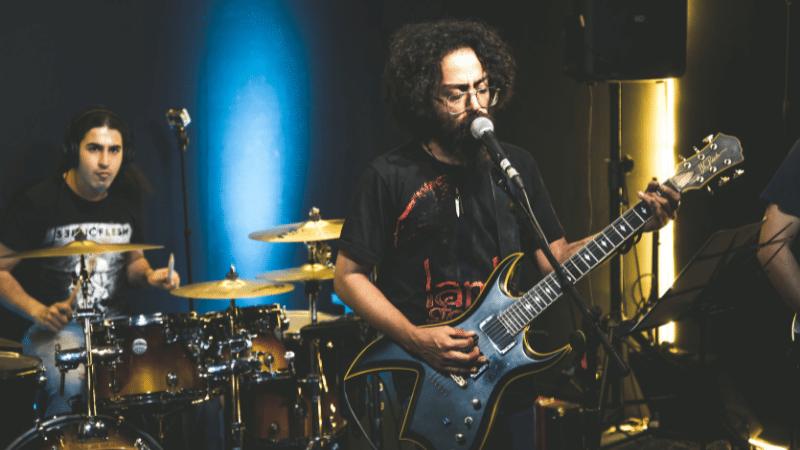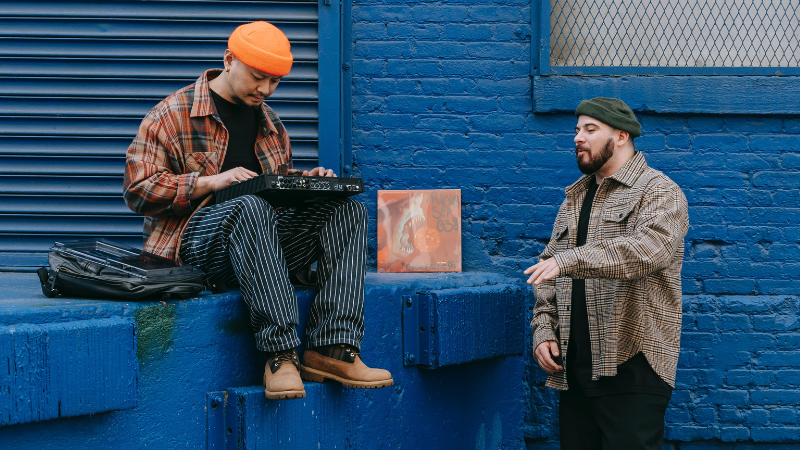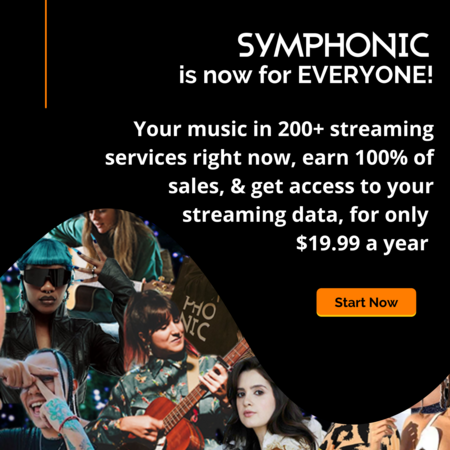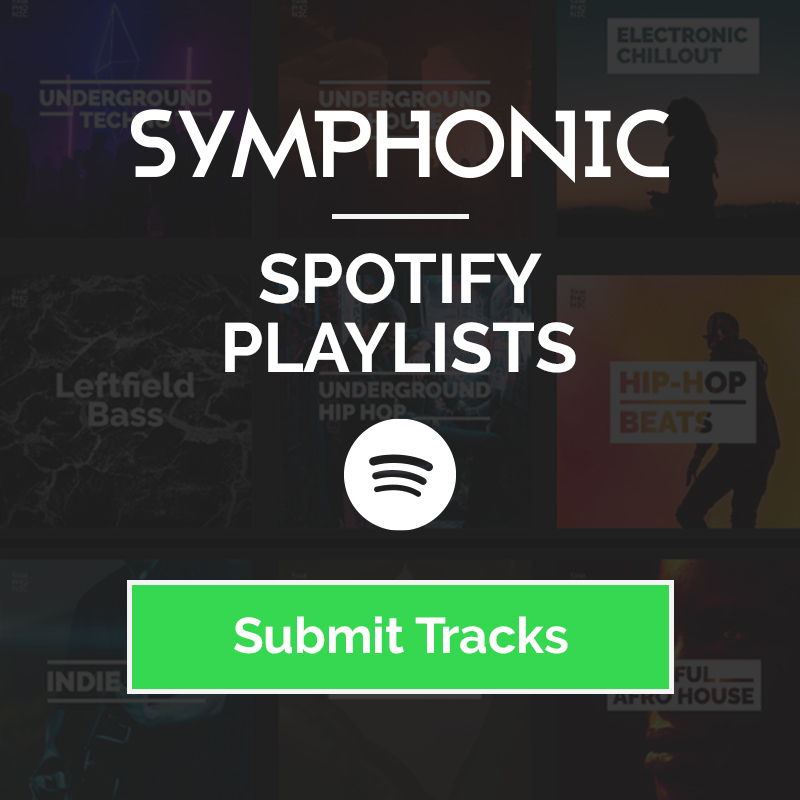
by Francesca | Jan 4, 2024 | Music Industry
Touring internationally can be one of the best experiences of your life… if you plan it properly. Without enough detailed planning, the whole thing could fall apart and put you in more debt than when you started. That being said, how do you know if it’s the right time to pursue an international tour? How do you get started if it is?
In this post, we’ll cover everything you need to know about going on tour overseas without getting lost in a (possibly) literal jungle.
Things You Need to Know About Touring Internationally:
How to know if you’re ready
Going on tour at all requires having an audience that will show up to your shows. Plain and simple. If you typically only have fans in your local scene, it doesn’t make sense to spend the immense amount of money it takes to tour just to play for empty venues in another country.
That being said, if you have a large following online and you frequently get DM’s and messages like, “Come to Brazil!” or “Please do a show in London!!” that’s a good sign you need to expand beyond the U.S.. Truth be told, you’ll know when the time is right. Your fans will demand it.
How to decide where to tour
How you choose where to tour is monumental in ensuring your overall success. With the help of Spotify and SoundCloud analytics, booking a tour has become almost an exact science. These tools let you see which tracks your audience is listening to the most and where those plays are coming from. So, if you want to optimize the chance of having sold out shows at every venue, gathering this background info will tell you exactly what your audience wants to see more of, so you can perfectly deliver every time.
Check out: How to Book a Tour Using Spotify and Soundcloud Analytics to learn more.
Figure out your passport situation
This should be obvious, considering you need a passport to travel literally anywhere out of the country at all, but many people put this off until the last minute and assume everything will be fine and dandy. Please do not be one of those people.
If you overlook properly securing your passport and making sure it’s all up to date, you could end up planning and booking an entire tour just to get to the airport on the day of and be turned away because of your freakin’ passport. That’s months of wasted time and a ton of hard earned money down the drain. Before you even start planning the tour, get your passport(s) in order.
Find out if you need a work visa
Okay, so technically you could be shady and choose the illegal route here, aka doing gigs and hoping the government doesn’t find out. However, we advise against that for obvious reasons. We understand you may not want to shell out the extra money to pay for a visa, but think about the alternative. Without one, your gear could be confiscated, you’ll be forced to miss tour dates, and you’ll lose way more money than you ever want to lose.
The best thing you can do is research the places you’re planning on going, see what’s legally required of you, and do it. Some places don’t require any documentation, but some do. It’s always better to be safe than sorry (and broke).
Transportation
If you’re going somewhere like Canada or Mexico, there’s not much to worry about since you can drive you and your equipment however you normally do in whatever vehicle you normally use. However, what if your tour is in France? Or Sweden? This is where your expenses are really going to add up.
Don’t worry, you’ve got some options. In many places, traveling by train is a great option if you travel light and plan on renting all your equipment. However, if you have all your gear in tow, this is no longer an option. In that case, your best bet is to rent a van. Don’t have enough money? Try to borrow a van from a local band in that area or schedule your shows together so you can carpool. Use all the resources available to you.
Additionally, in most european countries, Americans can drive with their American license just fine for short periods of time. However, some places require you to have an International Driving Permit. Again, always do your research.
Some things to remember:
- Many countries have different electricity voltages and outlet plug shapes. Make sure you have adaptors.
- Amps are heavy as shit. Rent them when you get there.
- When renting anything, get multiple quotes to avoid being taken advantage of.
- Bring a physical map (cue shocked gasp) just in case something happens to your smartphone.
- Plan out how payments are going to be allocated between bandmates beforehand to avoid any and all arguments.
When it comes to planning something as big as touring, you can’t be too prepared. Make sure you have back-up plans for your back-up plan. You’ll be saving yourself a lot of stress in the long run if you do.
Yes, touring internationally is a lot of work. Hell, touring anywhere is a lot of work. But going on tour can be the most fun you’ll ever have and it’ll foster amazing memories you’ll cherish forever. You’ll learn a lot and evolve as you go, and that’s the beauty of it.
Be smart, always do your research, and let the good times roll.

by Francesca | Dec 20, 2023 | Legal
The legal aspects of this industry aren’t always so straightforward. That’s why we place the utmost importance on providing as much information as we can to help you navigate through it with ease. There are many different types of contracts artists and labels will encounter throughout their careers, so let’s break it down a bit. In this post, you’ll learn about 6 major types of record label contracts you should definitely know about. Let’s dive in…
6 Types Of Record Label Contracts
Exclusive Recording Contract
The exclusivity of this contract applies to both the Artist (as a recording and performing musician) and to the songs written by the Artist during the term of the agreement. An additional number of songs written prior to the term are also assigned in the agreement. The exclusivity in respect to the Artist applies for the length of the agreement and in respect to the songs for the life of copyright (unless otherwise agreed).
- This one is a useful agreement for a label looking to engage an artist exclusively for a number of years, both as a performer and in relation to his/her songs.
Music Distribution Contract
With this agreement, the owner of master recordings grants an exclusive right to distribute ‘records’ embodied in any format (compact discs, phonograph records, audio cassette tapes, digital audio tapes, DVD, etc) for a certain period of time (the Term) and in certain countries (The Territory).
Non-Exclusive Recording Contract
A Non-Exclusive Recording Contract is an agreement under which copyright on certain recordings is assigned (from Artist to Label), but the Artist is not engaged exclusively by the Label as a recording and performing musician.
Therefore, the Artist is able to free to assign copyrights not covered in this agreement to other labels.
- This type of contract is a flexible contract for a label looking to license particular recordings but do not wish to tie up an artist exclusively for a number of years or for a number of releases.
- It can be used as a trial agreement before moving on to an exclusive recording type of arrangement.
360 Deal Recording Contract
A 360 Deal Recording Contract is an agreement which sets out the conditions in which a music company engages an artist with respect to his/her/their services as a recording artist, songwriter, composer/arranger of music and actor/actress (for film, TV and Theatre).
It also grants the music company merchandise, sponsorship and endorsements rights for the use of the artist’s names, likenesses, and related Intellectual Property. In addition, it’s important to note that 360-type deals have come around as the recording labels response to three major trends in the music industry in recent years:
- The steady decline of revenue from record sales
- The increase in prices of tickets to live events and fan expenditure on merchandise and
- The strengthening of the capabilities of the collecting societies and publishers getting better at their roles which translates in income from public performance and synchronisation becoming more and more significant.
Music Composition and Recording Service Contract
A Music Composition and Recording Service Contract is an agreement under which an artist is engaged by a company to compose, arrange, record and produce a piece of music to be used in the company’s own production (TV, Film, Video Game, etc).
With this, the artist receives a full and final fee as remuneration for the services provided and all copyrights are transferred to the company and moral rights waived. However, the artist remains entitled to his/her writer’s share of public performance royalties received directly from his/her performance right society (PRS, BMI, ASCAP, GEMMA, etc).
- Company gets granted a license to use the artist’s name, likeness, voice and biographical data in relation to the company’s production and artist promises that the music delivered to the company does not infringe any third parties’ copyright.
- This contract is useful for companies looking to commission both recordings and compositions from an artist for use in TV, films, etc.
Recording and Publishing Agreement On Certain Recordings
A Recording and Publishing Agreement On Certain Recordings is a type of agreement under which an Artist assigns both recording and publishing rights to a label in exchange for an advance, royalties and a commitment from the label to fund and release the recordings and procure synchronization and/or performance license for the compositions.
- Recording rights are assigned for the length of copyright (50 years after release) and Publishing rights for a rights period of fifteen (15) years.
- The label will have six (6) months from delivery of the songs to procure a release of the recordings and performance and/or synchronization usages for the Compositions.
- This type of agreement is especially useful for labels looking to acquire both recording and publishing rights from artist for particular songs using one agreement.

by Francesca | Nov 30, 2023 | Music Marketing
As intimidating as it seems, consistently releasing new music (every month or even every week, if you believe that works for you) has many undeniable benefits. Aside from making your fans happy to hear more from you, this practice does a lot of good for artists at any level. In this post, we’ll give you 6 reasons to release new music consistently. Here’s the rundown…
How Releasing Music Consistently Can Improve Your Career
Increased Engagement
Consistency is good for engagement on any platform, no matter what you’re into. Want to get better at production? Practice every day. Want to improve your vocals? Sing every day. The same theory applies to putting out music. The more you do it, the most traction it’s going to get. And let’s face it… your fans want as much from you as they can get. When you release new music, on any platform, the amount of people who will interact with it will grow right along with you. Not to mention, from the fan point of view, there’s something exciting about being able to expect something new from your favorite artist every week.
Go Viral on TikTok
TikTok also thrives on consistency. The more you post, the better your chances of it being caught up in the wave of a random trend. Every time you release music, use it to make little TikTok babies. Whether you use it to follow existing trends or to try and create new ones, the more you post the better.
Not sure how to figure out what’s trending right now? No problem. We did a whole post right here that gives you 6 of the best ways to find the hottest trends right now. And if you’re new to TikTok, here are some helpful resources to help you thrive…
Grow Your Catalog
Releasing music more frequently helps you grow your catalog significantly faster than if you waited every 6 months. This can be advantageous for streaming platforms, as the more songs you have increases your chances of being discovered through playlists and algorithms.
If you already have an extensive back catalog, did you know there are things you can do with it to keep the momentum going behind the scenes while you work on new things? Check out, “How To Maximize your Back Catalog While Working on New Releases” to learn how.
Build Momentum
Releasing songs consistently is a great way to build momentum for something bigger down the line. If you plan on going on tour or releasing a full album later in the year, you can hype up the day to come on socials with every release more often. Get everyone on board and offer incentives for streaming your tracks. If they like what they hear, they’ll share your work with their friends and grow your audience one release at a time. When whatever big day finally arrives, you’ll have a whole team of people ready to experience the fun and share it on socials.
Better Chances for Sync
If you want to get featured in movies, TV, commercials and more, it doesn’t hurt to give sync reps a lot to choose from. Although having a lot to choose from does technically help your chances, what kind of music you have out also plays a part.
Jon Mizrachi, the Senior Director of Sync Licensing for our in-house sync licensing division, Bodega Sync, explains:
“If you really want your music to stand out, it’s important to understand that songs are used in sync to support a narrative, not to tell one. If there’s a sad montage where someone dies, you’re not going to hear a song with lyrics about someone literally dying… Even in advertising, which is typically far more literal, music will be used to add depth to whatever you see in the footage or hear in the voiceover. You know what’s not a great song for Toyota? A song about Toyotas.”
So, if you really want to focus on optimizing your music for sync, try to create universal songs that aren’t too specific. If the goal is to connect with the listener, you have to craft your songs to be as relatable as possible. In addition, once one of your songs gets featured, the chances of your other songs getting chosen for other sync opportunities goes up, too. The more music you have, the higher chance of something being perfect for that new TV show hitting the market.
Practice Makes Perfect
Putting out music more often gives you the chance to really experiment with your personal sound. You can try new things and see how your audience reacts and if it doesn’t quite hit, no big deal! Try something new the next time, and keep it moving.
At the end of the day, I realize putting out music consistently is no easy task. Depending on your music, it may even be impossible. If you specialize in full blown musical arrangements for every track or don’t have frequent access to a studio, finishing a full song on a monthly or even weekly schedule is insane to even fathom. At the end of the day, it is up to you and this is an idea to try out where it makes sense. Challenge yourself to at least try, and see how it works for you.
Good luck!

by Francesca | Nov 23, 2023 | Legal, Music Industry
In today’s rapidly evolving digital landscape, the importance of protecting your creative works, particularly your music, has never been more prevalent. With the rise of online sharing and distribution, creators face new challenges in safeguarding their intellectual property. Luckily, our friends over at Cosynd have some tips to help you combat infringement effectively, including utilizing the new Copyright Claims Board. Here’s what you can do…
What To Do If Your Music Gets Stolen or Misused
Register Your Copyright
The first and most fundamental step in protecting your music is registering your copyright with the U.S. Copyright Office. This legal action establishes your ownership and strengthens your position in the event of infringement. In fact, you cannot legally enforce your rights as the owner without a registration in hand.
Monitor Your Content
Regularly track the use of your music online. Utilize digital tools and services to identify any unauthorized sharing or use. This proactive approach will help you identify potential violations promptly.
Issue Takedown Notices
If you come across instances of unauthorized use, issue Digital Millennium Copyright Act (DMCA) takedown notices to the hosting platforms. This action prompts them to remove the infringing content.
Take Legal Action
If you find your work is intentionally reproduced, distributed, performed, publicly displayed, or made into a derivative work without your permission, you can pursue legal action.
Note: New regulations mandate that you must have an official registration with the U.S. Copyright Office before you can file a lawsuit. Other types of registrations or mailing your music to yourself are not alternative precautions. Early registration can grant you a large payout — up to $150,000 per infringement PLUS your legal fees, but only if you register before your music is stolen or misused.
Get Justice Without Breaking the Bank
We understand that Federal Court isn’t always an affordable option. Excitingly, the new Copyright Claims Board (CCB) offers an accessible path to address infringements without excessive costs or the requirement to hire an attorney. The CCB operates independently of the courts and provides a streamlined process for resolving disputes of up to $15,000 per work and $30,000 per case.
This alternative to federal courts is designed to empower creators and copyright holders, offering a more accessible and less complex way to navigate disputes. Through its electronic filing and case management system, the eCCB platform, the CCB is equipped to handle three key types of copyright disputes, spanning copyright infringement, declaration of noninfringement claims, and disputes regarding misrepresentations in DMCA notices.
Engage Legal Assistance
In more complex cases, consulting legal professionals with expertise in intellectual property can be invaluable. They can guide you through legal proceedings and ensure that your rights are adequately protected.
By taking these steps, you not only safeguard your music but also uphold the value of your creative efforts.
Good luck!

by Francesca | Nov 23, 2023 | Music Industry, Music Marketing
After all the blood, sweat and tears it took to finally get your new music out into the world, it’s finally time to get as many people to listen to it as possible! From the technical stuff like registering with PROs to the fun stuff like social media promo, here are some of the most important things every musician should be doing after their release goes live. Let’s dive in…
What To Do After Making Your Music Available Online
Register with a PRO
To make sure you receive the royalties you’re rightfully owed, your songs need to be properly registered with either ASCAP, SESAC or BMI. Sadly, we can’t do this for you. Only you as the writer can affiliate with a PRO.
If your music is being distributed, performed worldwide, and you don’t have a publishing deal, your royalties are sitting in collection societies around the world waiting to be claimed by you. If you don’t register in time to collect your royalties, the collection societies will retain the royalties and you will miss out on that additional revenue. That’s why we created our publishing administration service to help you get through this process as easily as possible.
Register with SoundExchange
SoundExchange has paid out more than $7 BILLION in royalties to date. They are the sole organization designated by the U.S. Congress to collect and distribute digital performance royalties for sound recordings. They’re the ones who collect these digital performance rights from non-interactive music streaming on internet sources like SiriusXM and Pandora.
Sign Up for Lyric Distribution
Some distributors have partnerships for lyrics distribution and submission for example: Apple Music, Musixmatch, and LyricFind. With these partnerships, you’re able to streamline and expedite the submission process for faster turnarounds and less hassle.
Update your ‘Artist Pick’ on Spotify
Artist Pick is a great way to highlight what’s important to you right now, whether it be your latest release, playlist, show announcement, or even a Fan Support link. Check out the video below to learn how to do it…
Promote It On Socials
Social media offers an easy and effective method for promoting your latest track. To do so, start by creating a strategy tailored to your goals and target audience. Next, you can engage with your followers by posting your song in Reels, Stories, TikTok’s, and wherever else your fans frequent. You can also collaborate with fellow artists to expand your reach even further. Remember to utilize relevant hashtags, create visually appealing content, and consider running targeted ads for wider exposure. Lastly, always encourage user-generated content from your fans! Ask them to tag you in their own posts featuring your song, and get permission to re-post it on your own profile.
Pitch for Sync
When we talk about sync licensing in the music business, we’re referring to the act of synchronizing a piece of music with any form of visual media. That means getting your music featured in movies, TV episodes, commercials, video games, etc.
Get Some Press
After releasing new music, it’s always a good idea to send your music to music journalists, bloggers, and magazines for potential reviews and features. You can even share it in Facebook Groups, Reddit threads, or anywhere else where people can see your new song and share it with their communities.
In Conclusion…
You worked hard on your new track. Don’t let it get lost in the shuffle of thousands of songs trying to break through this crazy industry. Practicing things like consistently hyping yourself up on socials, optimizing your Spotify, SoundCloud, Apple Music, etc. profiles, and everything else we covered above, can make or break the performance of your work.
In the meantime, be proud of all your hard work! Keep going, be consistent, and believe in your talents as an artist.
Good luck!







